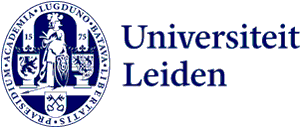
Burkina Faso: Artisanal Gold Mining in the Context of Violent Insecurity
Over the last 5-6 years Burkina Faso has become seriously implicated in the rapid and dramatic changes in the geopolitical situation in the Sahel. The country, once reputed for its stability and safety, has come under the spotlight for the number of violent attacks and of internally displaced people. In the public domain, the violence is often simply labelled as jihadist terrorism and gold mining is seen as a source for fuelling the conflicts. On 23 September 2021 members of the Gold Matters project discussed their policy brief at the Nordic Africa Institute with Burkinabe, Swedish, Danish and Dutch policymakers working at ministries, Embassies, and for NGOs. This article is a resume of this meeting by Dr. Sabine Luning.
Virtual Policy Note Launch
Together with members of our Gold Matters project Cristiano Lanzano and Alizeta Ouedraogo, we published a policy brief to analyze the current violence in longer histories of state-society engagements in Burkina, and to nuance perspectives on the relation between insecurity, jihadism, criminal networks, and gold mining.
We discussed the reaction of the Burkinabe government over the last years and how state and security forces are still hampered by internal power struggles, and focus too strongly on creating a safety bubble for the capital. In rural areas citizens feel more and more abandoned, a sense which is reinforced by the government’s approach to small-scale mining. Regions where gold mining is prominent, in particular in the North and the East of the country, are at the heart of the violence. The reaction of the government to try and close down mining sites, since they can serve as sources of income for jihadist and criminal groups, has adverse effects. It deprives large groups of citizens of means of livelihood and makes it even tempting for miners to seek protection from violent groups. We discussed regional differences in the articulation between goldmining and violence and worked on proposals how the ministry of mines can be more actively involved in facilitating more secure trade lines of gold. We also invited the diplomats to speak to the question of the wider geopolitical situation, notably the role of France. The French military intervention is characterized by a colonial, repressive stance. This has been contested by civil society groups in Burkina, Mali and Niger and also by other European countries. However, what to make of the current shift in attitude by the French? Acknowledging that their involvement is not successful, they seem to use the recent coup in Mali to legitimize a complete and fast total retreat. How will changes in involvement, as exemplified also e.g. in Afghanistan, play out in the Sahel region?
At the end of the meeting we showed a film made by Gideon Vink and Christophe Sawadogo as part of the Gold Matters project. They were filming the art collaboration between the painter Christophe Sawadogo and members of the mining community in Karentenga, Central Burkina, last June. While in the process of making the installation art (a roundabout, and a food stall), the most violent terrorist attack so far occurred in Burkina: in the night of 4-5 June 160 people were killed in the mining community Solhan, in northern Burkina,. The makers of the art work in Karentenga decided to dedicate the work to co-memorating the deceased and as a call to tolerance.
Gold Matters in Burkina Faso: The Art of Bonding in Precarious Times
A short film by audiovisual director Gideon Vink and painter Christophe Sawadogo in collaboration with the Gold Matters project and financed by the Nordic Africa Institute.
Due to the selected cookie settings, we cannot show this video here.
Watch the video on the original website orImage: A dust-covered miner at a gold mine, Burkina Faso, 23 February 2020. Photo: Sam Mednick, AP
